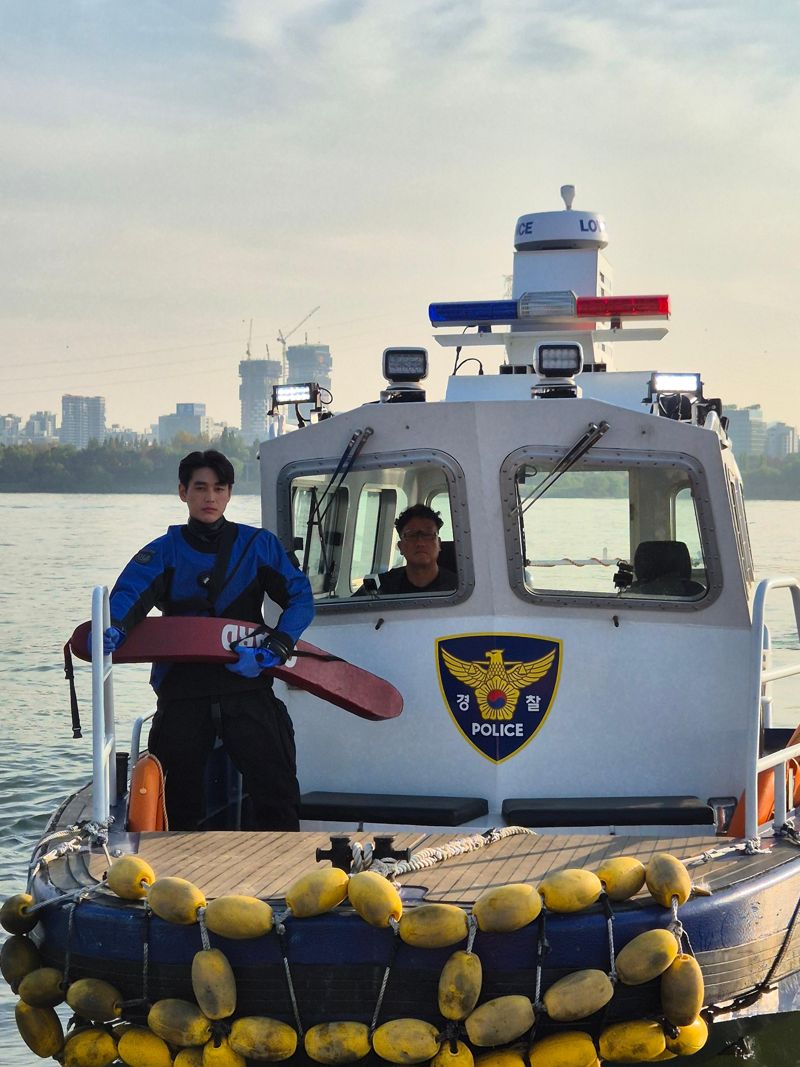[Number 112] "The Most Frequent Cry on the Han River: 'Help Me'... We Continue to Save Lives Every Day"
- Input
- 2025-11-19 13:40:17
- Updated
- 2025-11-19 13:40:17


[Financial News] "We work with a sense of duty to save lives, and even if the person has already passed away, we feel responsible for returning them to their families. I want to continue fulfilling this role with unwavering dedication," he stated.
On the 19th, Junseok Moon, sergeant of the Han River Police Unit at the SMPA, remarked, "I don't do this work for gratitude or recognition. Saving a life is reward enough."
Sergeant Moon has worked as a rescue officer with the Han River Police Unit for six years. After serving at the Namhyeon Police Box under the Gwanak Police Station, he volunteered for the Han River Police Unit, a post he had long aspired to. Wanting to save lives, he obtained relevant certifications during his military service and steadily advanced his qualifications to join the unit.
The Han River Police Unit is responsible for maintaining order on the river, including rescuing jumpers, recovering bodies, enforcing the law, and providing security for events and VIPs. The rescue force consists of four teams (12 members per team), dividing the river from Gangseo to Gangdong into four zones, with three-person crews working four shifts. Certifications in swimming, lifesaving, scuba diving for underwater searches, and boat operation are all required. Due to the Han River's connection to the sea, officers must also monitor the tides to determine search directions.
The Han River Police Unit conducts regular training three times a month (in swimming pools, during the day, and at night). They focus on themes such as rescue, diving, boat operation, and enforcement, practicing repeatedly. When there are no emergency calls, they hold brief daily drills. Sergeant Moon explained, "If we felt there were risks or shortcomings during a previous dispatch, we reinforce our training on that topic next time."
Even for a veteran like Sergeant Moon, there are painful memories. One such incident occurred at Yanghwa Bridge during a nighttime suicide attempt. While searching at full speed aboard a patrol boat, he spotted a hand floating above the water's surface. Although he had encountered situations where people had already sunk before arrival, it was the first time he witnessed someone disappear underwater right before his eyes. "My team leader kept reassuring me that it wasn't my fault, but I couldn't help thinking, 'If only I had seen them a little sooner.' Since then, I have simulated the search route and water flow much more thoroughly in my mind before every dispatch," he recalled.
Over his six years and roughly 50 rescues, the words Sergeant Moon has heard most often are 'Help me.' He reflected, "Many people come here wanting to end their lives, but deep down, I think they still want to live. It made me realize that they didn't want to die completely—they just didn't want to go on living as they were." Due to the urgency of the situations, he has never received thanks after a rescue, but he smiled, saying, "I'm not doing this for praise. It's simply our job."
Sergeant Moon also recalls a reunion. A high school student he once rescued after a suicide attempt at dawn returned to the Han River on his shift not long after being sent home to his parents. "The student was struggling with depression. I realized that rescue alone is not enough—emotional healing and social care afterward are even more important," he said.
Sergeant Moon's final and most urgent request is for 'quick reporting.' When someone is seen clinging to a bridge railing, people often hesitate, wondering if they should call for help. If a report is delayed by 10 to 20 minutes, the golden time may be lost. "If it turns out to be a false alarm, that's a relief. But if it's a real emergency, your call could prevent a tragedy. Please don't hesitate—report immediately, even if you're not completely sure," he emphasized.
yesji@fnnews.com Kim Ye-ji Reporter